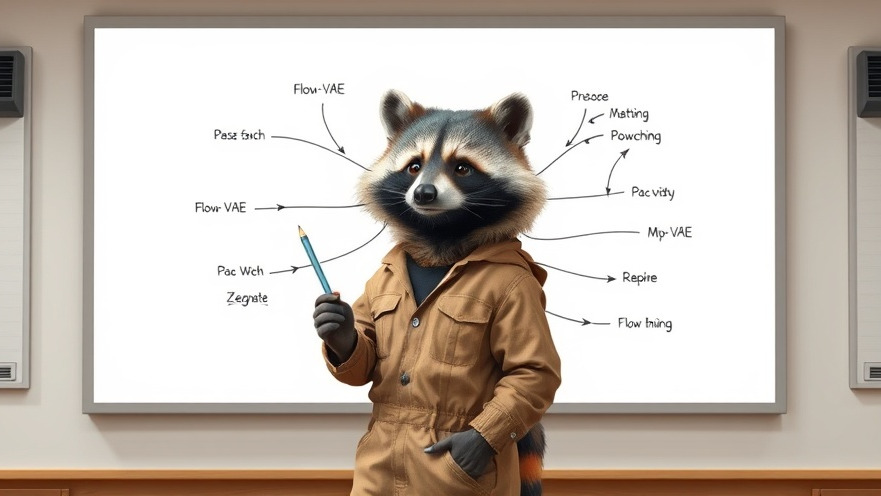
Revolutionizing Voice Technology with MiniMax-Speech
In the ever-evolving landscape of artificial intelligence, advancements in voice cloning technology exemplify the transformative capabilities of AI. Among these innovations is MiniMax-Speech, a groundbreaking system that allows for true zero-shot voice cloning without reliance on transcribed reference audio. This signifies a significant leap in text-to-speech technology, breaking free from the constraints that have historically hampered voice synthesis.
A Closer Look at the Innovations Driving MiniMax-Speech
What sets MiniMax-Speech apart from its predecessors? Its architecture combines a learnable speaker encoder and a flow-based VAE (Variational Autoencoder), both crafted to enhance the audio quality and ensure a closer match to the speaker's voice. Unlike traditional models that require explicit transcription of audio samples, MiniMax-Speech extracts essential voice characteristics purely from untranscribed clips, ensuring a more natural synthesis process.
This is crucial for developing applications across various languages and dialects, allowing users to utilize voice technology in multi-lingual contexts, a flexibility that contributes to its appeal in tech hubs worldwide.
Understanding Zero-Shot Voice Cloning and its Impact
Zero-shot voice cloning represents a new frontier in AI, enabling systems like MiniMax-Speech to mimic any speaker's voice instantaneously. The autoregressive Transformer model at its core captures not just the timbre and vocal style but also improves the overall fluidity and prosody of the speech produced. This capability is not simply a technical achievement; it opens avenues for ethical applications across industries—from entertainment to accessibility technologies.
The Future of AI in Voice Cloning: Prospects and Opportunities
The implications of this technology extend far beyond convenience; it raises questions about ethics in AI creation and the future of voice representation. As systems become capable of closely mimicking any speaker, industries reliant on voice, such as media and gaming, will have to navigate the new ethical landscape created by such powerful tools. This evolution highlights the need for robust AI ethics and guidelines to manage these capabilities responsibly.
Final Thoughts: The Role of Innovation in AI
MiniMax-Speech is more than just a voice cloning tool; it is a reminder of the incredible pace at which AI technology is advancing. For developers, entrepreneurs, and tech enthusiasts, understanding the fundamentals of AI—not just in theory but in practical applications like voice cloning—is essential. As new tools emerge in the AI ecosystem, staying informed and engaged is vital.
 Add Row
Add Row  Add
Add 




 Add Row
Add Row  Add
Add 



Write A Comment